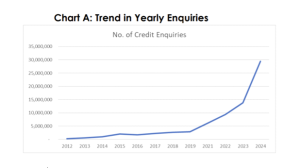
The inadequacy in food labelling has for some time now become topical as health experts have indicated that it is silently undermining public health and threatening to worsen the burden of non-communicable diseases (NCDs).
To these experts the lack of proper labelling on food products is not just a regulatory oversight, but a ticking health time bomb which could explode anytime soon.
For too long, food labelling has been treated as a cosmetic feature, that is something optional or ornamental in Ghana, however, in reality, it is a powerful tool for consumer education which enables individuals to make informed dietary choices.
Not only is labelling important, but it also serves as a frontline defense against the rising tide of lifestyle-related illnesses such as diabetes, hypertension, heart disease, and certain cancers.
Regrettably, Ghana’s food market is awash with poorly labelled products that leave consumers uninformed, misled, or worse— exposed to hidden health risks.
Current regulations from the Food and Drugs Authority (FDA) require back-of-pack labelling, but enforcement remains uneven and ineffective.
More critically, there is no operational policy mandating front-of-pack labelling, especially warning labels for ingredients or nutrients of concern such as added sugars, sodium, and unhealthy fats.
This gap is a dangerous one, as front-of-pack labels have proven globally to be among the most effective ways of influencing consumer choices at the point of purchase.
In a context where NCDs are becoming a leading cause of morbidity and mortality in Ghana, this inaction is unacceptable.
The food environment is increasingly being shaped by ultra-processed foods, sugary drinks, and convenience snacks, many of which offer little nutritional value, and without clear labelling, consumers are left in the dark about what they are consuming.
The Ghanaian Times therefore agrees with Professor Amuna, one of the country’s leading health experts’ call for stronger labelling policies. For us the call is both timely and necessary as it highlights an urgent need for a national food labelling policy that mandates easy-to-understand, prominent, and standardised labels on the front of food packages.
Such a policy, we believe would not only protect public health, but also push food manufacturers toward healthier product formulations. If high levels of sugar or sodium must be disclosed boldly on the front of the package, it will likely incentivise producers to reduce these harmful ingredients.
Encouragingly, there are steps being taken in the right direction. The Ministry of Health, the FDA, and a team of technical experts led by Professor Amos Laar from the University of Ghana has been working on a front-of-pack labelling policy.
The Ghanaian Times believes that this initiative must be seen through to completion and implementation, however, policy development alone is not enough and thus must be backed by enforcement, monitoring, and public education which are equally critical.
Stakeholders across the health, trade, and agriculture sectors must rally behind this cause. In addition, the government should provide the legal backing and resources needed for full-scale enforcement. Civil society organisations, too, must play their role in advocating for consumer rights and educating the public on how to interpret food labels.
Ghana has an opportunity to lead the West African sub-region by setting a benchmark in food labelling policy. In doing so, it can not only improve domestic health outcomes but also inspire neighbouring countries to take similar action.
The health of a nation is a national asset, and protecting it should be a collective priority. While policymakers and regulators have their work cut out for them, consumers also have a role to play.
As Professor Amuna rightly pointed out, people must develop the habit of reading labels, by checking for expiry dates and nutritional information.
Consumer vigilance, coupled with government regulation, creates a powerful synergy for safer, and healthier food environments. Ghana cannot afford to treat food labelling as a peripheral concern. It is central to the country’s fight against non-communicable diseases and essential for building a healthier population.
The post Time to sanitise Ghana’s food market with stronger labelling regulations appeared first on Ghanaian Times.
Read Full Story
















Facebook
Twitter
Pinterest
Instagram
Google+
YouTube
LinkedIn
RSS